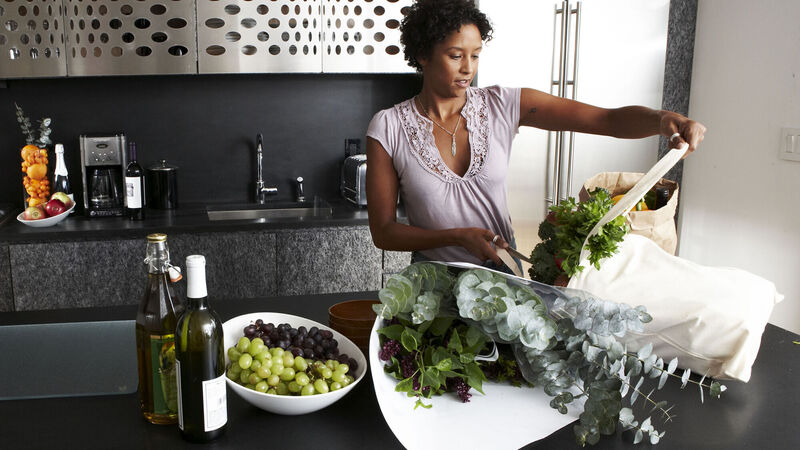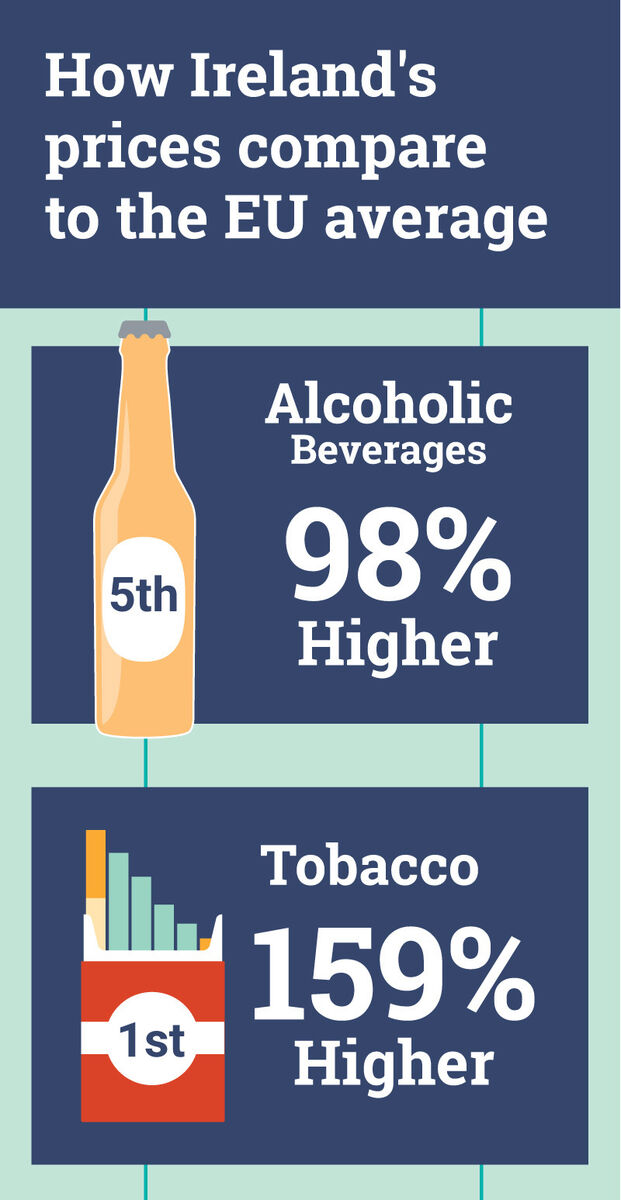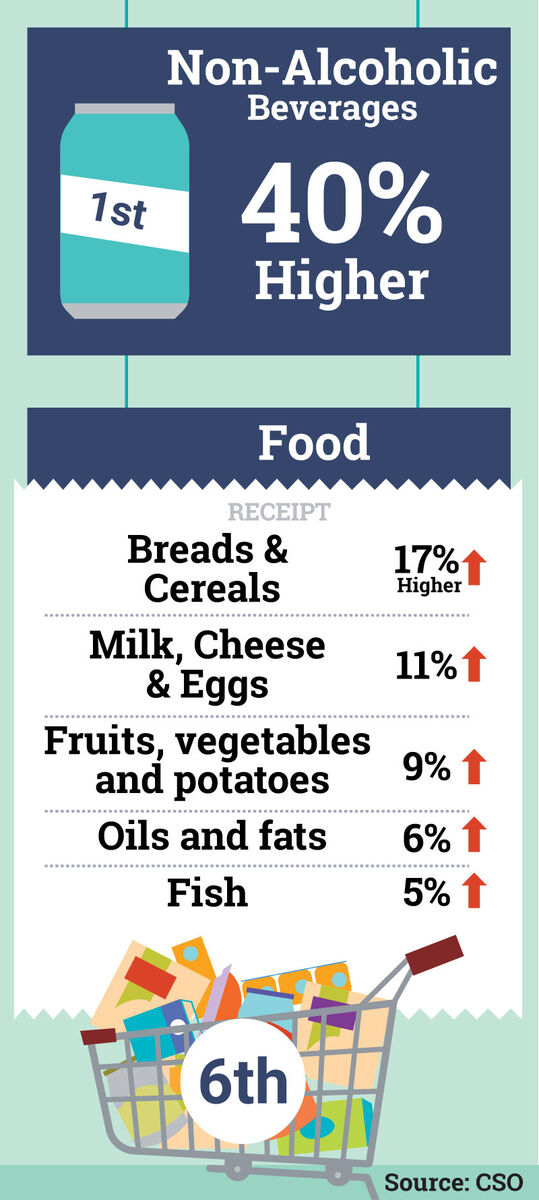Irish food and alcohol prices among highest in Eurozone, with basic groceries far above EU average

Irish consumers pay 12% more for food than the EU average, while alcohol prices are nearly double the European average.
Ireland is the second most expensive country in the Eurozone for food and alcohol, with consumers paying significantly more for items like milk and bread compared to the EU average, the Central Statistics Office (CSO) has said.
In a new release analysing data published last month by the European Commission, the CSO said it shows how Ireland compares with other European countries, with this country ranking among the most expensive across several categories.
Irish consumers pay 12% more for food than the EU average, while alcohol prices are nearly double the European average.
Statistician Edel Flannery said: “Looking at specific food categories, we can see that except for Meat, prices for the various types of foods in Ireland were all higher than the EU27 average in 2024.
“Prices for Breads & Cereals were 17% higher than the EU27 average, while Milk, Cheese & Eggs were 11% higher, Fruits, Vegetables & Potatoes were 9% higher, Oils & Fats were 6% higher, and Fish prices were 5% higher.”
In the category covering coffee, tea, mineral waters, soft drinks, and fruit juices, Ireland was the most expensive of 36 European countries, with prices 40% above the EU average.

For tobacco, prices in Ireland were more than twice the EU average, at 159% higher.
Across the Eurozone — comprising the 20 countries using the euro — Ireland ranked either first or second for the cost of food, drink, and tobacco.
These figures come amid a growing backlash against the rising cost of groceries. Month-on-month CSO data shows food inflation is consistently outpacing overall inflation.
The most recent figures reveal that grocery inflation is more than double general inflation, as Irish households pay more for basic necessities.
A recent Barnardos survey found that over two in five families are cutting back on essentials like heating, electricity, food, and medical appointments due to rising costs. Two in five parents reported skipping meals or reducing portion sizes so their children would have enough to eat.

Charities have urged the Government to provide targeted supports in the upcoming Budget for families hit hardest by inflation. However, ministers this week indicated the hospitality sector is set to be the main beneficiary, with a planned VAT cut expected to cost €1bn.
Meanwhile, the consumer protection watchdog said it has conducted a series of unannounced inspections at retailers nationwide.
The Competition and Consumer Protection Commission (CCPC) said it identified multiple breaches of consumer protection law, including inaccurate or missing price displays on items for sale.
“Consumers need to see prices up front in order to make informed choices,” the CCPC’s Patrick Kenny said. “If our enforcement officers find breaches of consumer protection law, we will act.”
Separately, Junior Enterprise Minister Alan Dillon has asked the CCPC to investigate supermarket profitability and whether barriers exist preventing new retail chains from entering the Irish market, reported this week.





